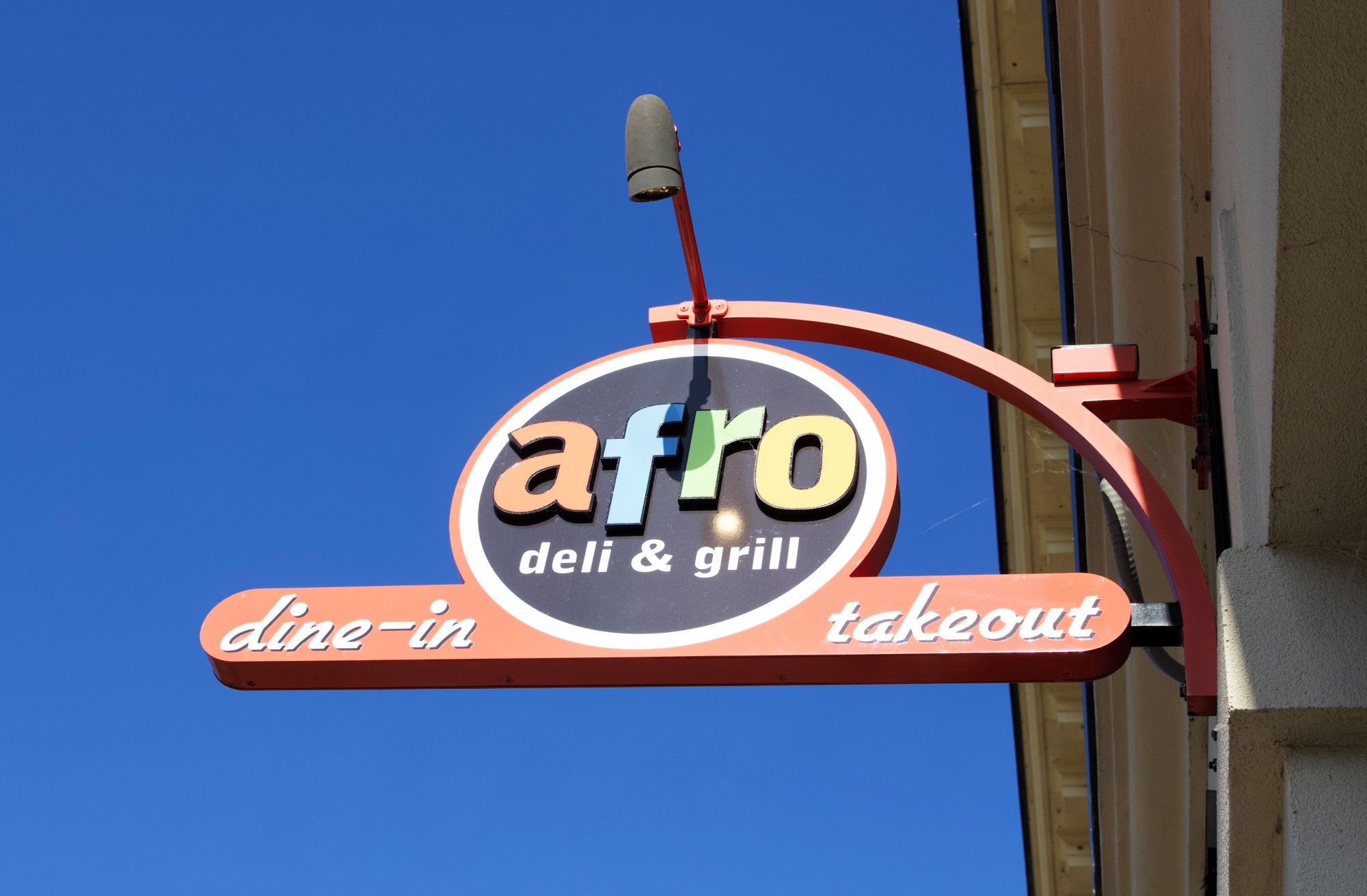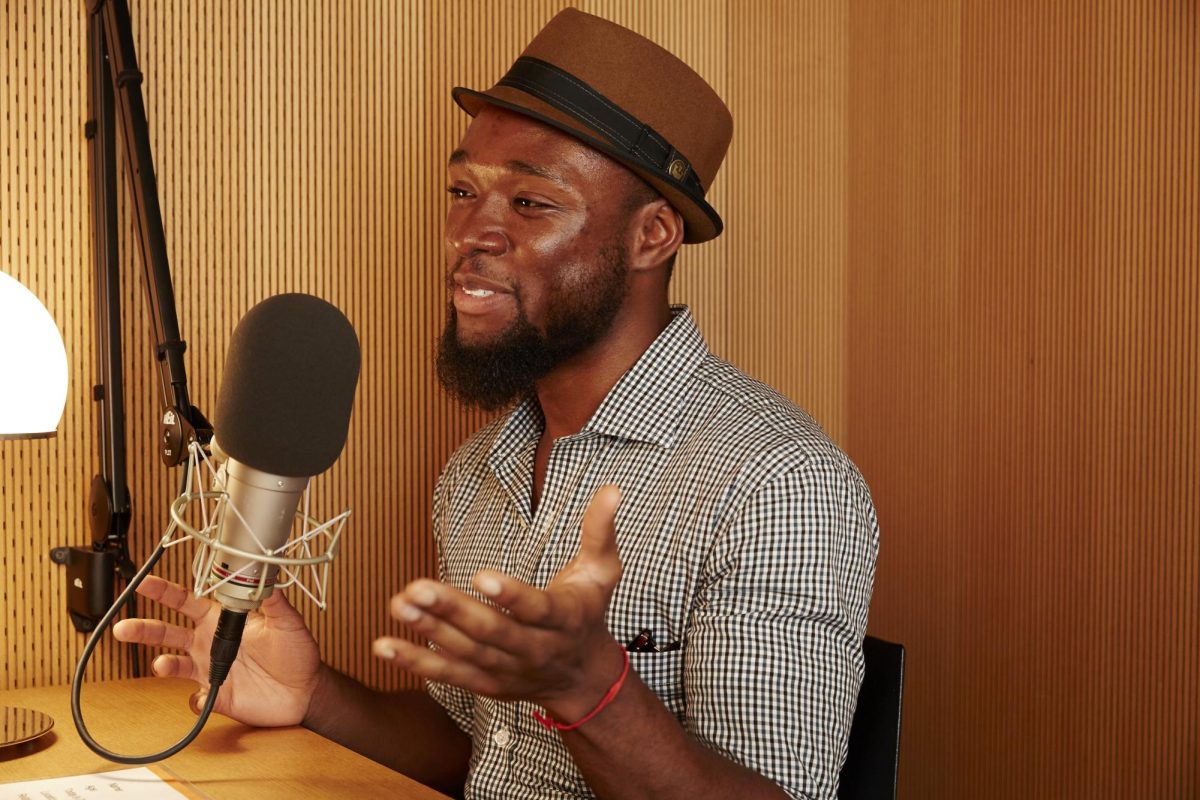The COVID-19 pandemic forced many University of Minnesota-area restaurant owners to make changes to their businesses over the past two years. While some businesses are returning to pre-pandemic levels, others are still working to stay afloat.
Over the past two years, some restaurant owners near campus have taken opportunities to grow their businesses. In the same time, COVID-19 has continued to negatively impact other businesses, forcing them to make changes to keep their restaurants open.
Afro Deli returns home
Abdirahman Kahin grew up in Cedar-Riverside, the neighborhood where he helped open the first Afro Deli in 2010.
The African fusion restaurant closed its Cedar-Riverside location in 2016 after a contractual lease dispute with the African Development Center. Despite the closure, Afro Deli expanded to three locations in Downtown West, Stadium Village and St. Paul. After buying out his business partner in 2021, Kahin said it was time for the business to return to Cedar-Riverside.
“It’s so special because this is where Afro Deli was born,” Kahin said. “I know the neighbors, I know the streets … I feel I belong here. It’s an honor for me to come back.”
The newest Afro Deli location opened on June 8 and moved into space that was previously filled by Campus Cafe. Kahin said he was able to purchase the space after the cafe closed in 2020 due to struggles from the COVID-19 pandemic.
Afro Deli began a partnership with Minnesota Central Kitchen near the beginning of 2021 to feed people in need across the metro. Kahin said he believes his business can provide roughly 2,400 meals per week in the Cedar-Riverside community.
Afro Deli uses a rented commercial kitchen in St. Paul to distribute free meals to anyone in need in Minneapolis, Kahin said. Afro Deli’s kitchen has fed thousands of people in need in the Uptown and St. Anthony neighborhoods and will now extend to Cedar-Riverside.
“We tell everyone that they are welcome to come here,” Kahin said. “If you have thoughts or concerns about the community, you can talk to me … and I’ll be willing to help in any way I can.”
Kahin said he hopes the newest Afro Deli restaurant will help bring the neighborhood closer together.
The Cove keeps fighting
After getting married in Hawaii, Lee and Lana Sayt decided to open their own poke restaurant in 2017. Since then, the co-owners of The Cove in Dinkytown have been forced to make substantial changes to keep their doors open.
The two discovered poke during their travels in Hawaii and decided to make the popular Hawaiian dish a large part of their new restaurant. At The Cove, the dish is customizable, and customers can choose the types of protein, rice and other ingredients in their bowls.
Lee Sayt, who is an University alumni, said The Cove became almost instantly popular due to being one of the first poke restaurants in the neighborhood. However, as more local restaurants began serving poke bowls, The Cove lost foot traffic, causing the restaurant to switch its focus primarily to catering by its third year.
COVID-19 forced The Cove to make even more changes, Sayt said. Loss of sales combined with staff shortages contributed to the restaurant significantly limiting its hours and menu.
Since the beginning of the pandemic, The Cove has been closed on weekends and hours outside of peak lunch and dinner times due to the cost of being open, Sayt said. Additionally, the restaurant cut some products off its menu due to inflated prices.
“We’ve had to be innovative, more cost efficient right now,” Sayt said. “That’s been our main focus. Unfortunately, we haven’t had the means to look for new products. Currently, we’re just trying to stay afloat.”
The Cove uses sustainably-sourced fish in its food, a factor that has kept product and menu prices high for the restaurant. Although business has picked up in recent months, Sayt said it isn’t yet back to pre-pandemic levels when the restaurant was thriving.
Sayt said he considers his family’s restaurant “fortunate” due to its ability to stay open but hopes “a little bit of normalcy” will return to The Cove and other businesses in the near future.
Tamu Grill & Catering rebrands and reopens
The Viking Bar in Cedar-Riverside was under construction to become Kilimanjaro Grill & Catering in 2020. When the pandemic hit, the Kenyan restaurant’s opening was delayed for more than a year.
Kilimanjaro opened in November 2021, but was limited to dinner hours on Saturdays. Throughout the following months, owner and head chef George Ndege slowly opened the restaurant, primarily relying on catering orders for business.
“It was gradual. We added hours and then we cut our hours back,” Ndege said. “Now when we open, it’s just my family that works here. It’s a family business.”
Kilimanjaro will have its grand opening on July 9 and will serve dinner hours seven days per week, Ndege said. However, the restaurant’s name will be changed to Tamu Grill & Catering in an effort to prevent confusion between Ndege’s restaurant and the nearby Kilimanjaro Cafe in Cedar-Riverside.
Ndege hosts a local radio program called “African Rhythms” and said he hopes to use the restaurant to help attract and promote local musicians in the community.
The restaurant will eventually host live performances from local artists and Ndege will also promote performances using his radio program. The goal is to revive a space that had become empty in recent years, said Ndege.
“The building was just an eyesore for this community because it had sat vacant for a long time,” Ndege said. “It’s just my pleasure to bring it back to life.”



















